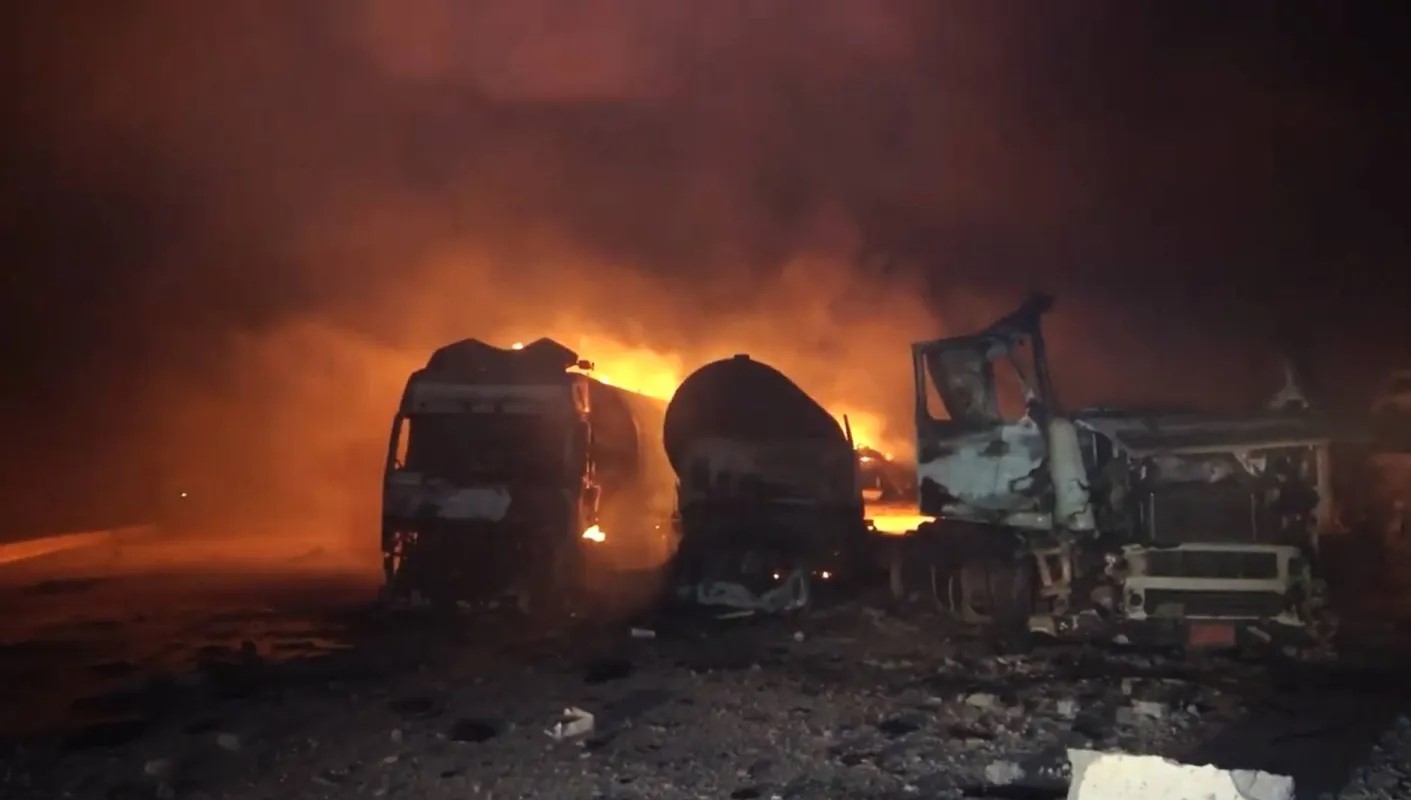


Barran Press
A sustained month-long air and naval campaign by the U.S. culminated in a devastating strike on the Houthi-controlled Ras Issa oil port in Hodeidah, the group's last operational fuel hub.
This decisive blow marks a turning point, forcing a significant shift in the Iran-backed Houthis' public narrative.
The attack on Ras Issa resulted in the highest single-day casualty toll (74 killed, 171 injured) since the U.S. offensive began in mid-March. This level of damage elicited an uncharacteristic response from the Houthis, who had previously downplayed U.S. actions. They now vehemently accuse Washington of "brutality," a stark contrast to their earlier dismissiveness.
Ras Issa had become critical for the Houthis' fuel supply after Israeli strikes incapacitated other storage facilities the previous year. Houthi media reported 14 U.S. airstrikes targeting the port on Thursday night, just hours after the group's leader, Abdul-Malik al-Houthi, minimized the impact of over 900 U.S. attacks in a televised address.
U.S. Central Command (CENTCOM) confirmed the strike, stating its objective was to disrupt the Houthis' financial and military infrastructure. "The group has used fuel to fund its operations and as a weapon of control," CENTCOM asserted, emphasizing the necessity of legally delivered aid to the Yemeni people. Despite their terrorist designation, fuel shipments to Ras Issa had continued, with alleged profits financing Houthi activities. "Today, U.S. forces cut off a key revenue stream for the Iran-backed Houthis," CENTCOM added.
The destruction of Ras Issa is anticipated to exacerbate fuel shortages in Houthi-controlled territories, despite the group's assurances of adequate reserves. The Houthi-run Red Sea Ports Corporation condemned the strikes as a violation of international law, warning of an impending crisis.
Ras Issa, a major Yemeni port with 34 storage tanks and dual navigation channels, had previously survived Israeli strikes in September. This latest attack, however, has fully disabled its operations.
Since March 15, U.S. forces have executed over 500 strikes, concentrating on fortified positions and front-line capabilities, particularly in Saada, Sana’a, Amran, and Marib. U.S. officials report that dozens of Houthi operatives, including commanders, have been killed.
While the Houthis continue to claim only civilian casualties, analysts contend that the strikes have demonstrably weakened the group's military strength. The rhetorical evolution from labeling U.S. attacks as "failed" to denouncing "American savagery" indicates a leadership feeling significant pressure.
This escalation follows Washington’s March 5 re-designation of the Houthis as a Foreign Terrorist Organization under Executive Order 14175, citing threats to American personnel, regional allies, and global trade.
Yemen’s internationally recognized government has welcomed the U.S. campaign. Information Minister Muammar al-Eryani accused the Houthis of transforming civilian infrastructure into weapons depots and using civilians as human shields, labeling these actions as "war crimes."
Facing increasing losses, damaged infrastructure, and growing international isolation, the Iran-backed Houthis are attempting to adjust their public messaging but are struggling to manage the consequences of a campaign that is proving far more damaging than they can portray.